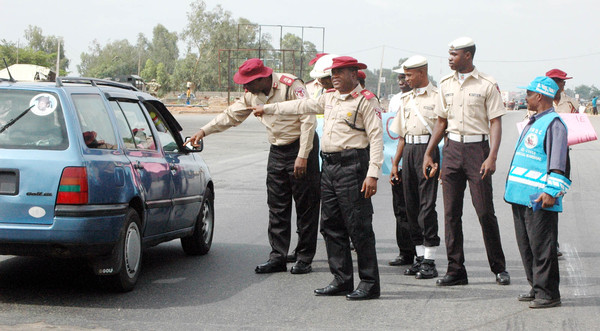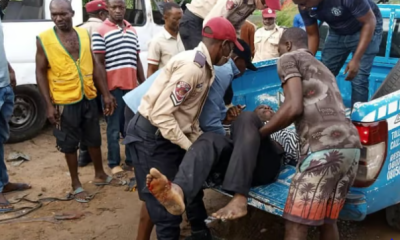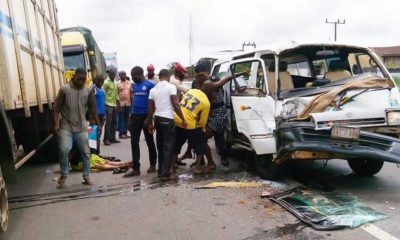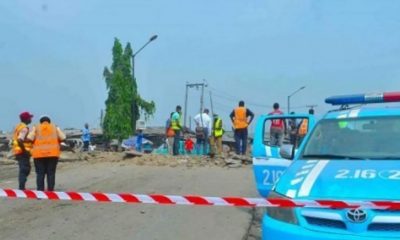The Federal Road Safety Commission has said it is preparing to sue Abia Speaker Chikwendu.
Kalu, his wife, and his trigger-happy security aides that shot at two corps members flagging down the Speaker’s wife on Aba-Port Harcourt road recently.
Commission has been doing such sabre-rattling all along—at least for the three years its Corps Marshal Boboye Oyeyemi has been leading the defenceless law enforcement agency.
But that threat has not in any way reduced the exposure to unwarranted job hazards the highway marshals have always faced. The two shot in the Abia case are pulling through in hospital, but many of them have lost lives and limbs in active service.
In 2016, 70 FRSC operatives were run over by reckless drivers across the nation. “Losing 70 personnel is not a joke,” he said at the 2016 annual strategy session. But casualty figure was worse a year before then. No fewer than 180 were so killed a year before then.
According to him, on one of those incidents, a motorist ran into a mobile court in session and laid out three operatives almost instantly.
That was 230 deaths in two years.
As road demons account for 40 percent of officers’ death, politicians like Kalu and regular Joes make up the remaining.
Early in July, some National Union of Road Transport Workers (NURTW) officials in Jigawa got onto a brawl with a patrol team which had questioned the transporters for overloading and non-installation of speed limiters in their bus. According to the FRSC PRO Bisi Kazeem, the NURTW officials not only set the corps patrol vehicle ablaze but also badly damaged another vehicle.
“The FRSC office was also destroyed by the rampaging NURTW officials,” he said while cataloguing series of attacks on the commission.
Some months back, at Igbo Ukwu, in Anambra, a mob descended on a corps member, beat him up, and would have got away with the offence had the state’s Special Anti-robbery Squad not intervened.
Among the eight law enforcement agencies in Nigeria, the FRSC is the only unarmed, and statutorily barred from use of force.
Yet Section 10 (4) of the FRSC (Establishment) Act, 2007 states members of the Corps shall have powers to arrest.
To arrest offenders without use of force has, however, turned the traffic law enforcers into fair game, especially when the offenders are politicians or higher-ups in Nigeria’s bureaucracy.
As a paramilitary organisation, the corps members are not entirely cackle-handed when it push comes to shove.
Since 1992 recruits into the commission have been undergoing basic defence and arks training by the military.
In fact, an amendment to the FRSC Act in 2007, said Kazeem, allowed the corps members to bear arms.
“But successive Corps Marshals of the commission did not prioritise its implementation,” he said last December when there was a rumour the FRSC had been armed,
Even if they had, Nigerians would have opposed one more agency brimming with gun nuts across the high ways.
The Wailing Wailers, a pro-democracy group, using some sort of blackmail had to call on the Senate to counter the alleged executive decision.
“Empowering them with guns without adequately informing Nigerian is suspicious, dangerous and suggest some sinister motives by the government,” said the group’s Ag. National Publicity Secretary, Usman Abubakar.
And the matter ended there.
But when it does recur—like it did in Abia—Oyeyemi will rue the helplessness of his men without arms.
After the Abia Speaker had denied he ordered his aides to beat and shoot the FRSC agents though eye witnesses said he did, he went to the hospital to see the victims—who were so angry they protested his coming to visit them.
The itchy fingers that pulled the triggers have been arrested.
Kalu also has settled up their hospital bills.
And that probably settles the FRSC case against the third most powerful man in Abia.

 Business7 days ago
Business7 days ago
 Business6 days ago
Business6 days ago
 Education7 days ago
Education7 days ago
 Football15 hours ago
Football15 hours ago
 Crime7 days ago
Crime7 days ago
 Covid-196 days ago
Covid-196 days ago
 Business7 days ago
Business7 days ago
 Latest4 days ago
Latest4 days ago













